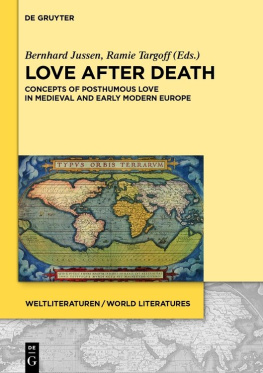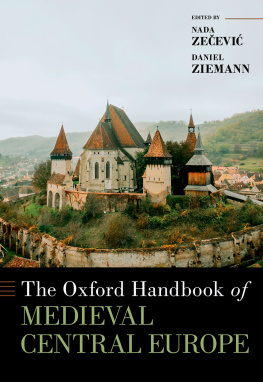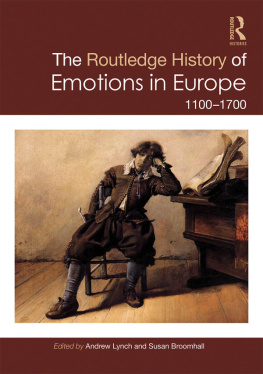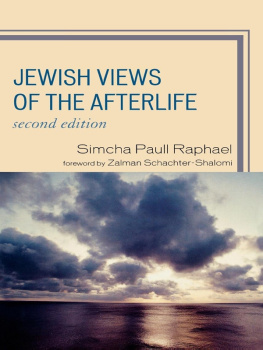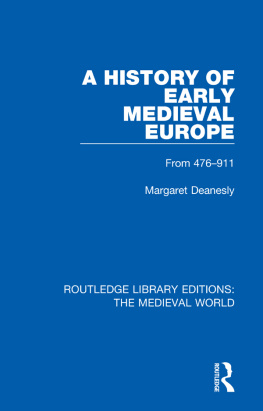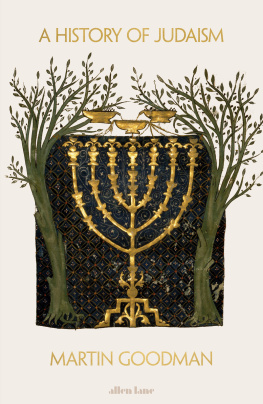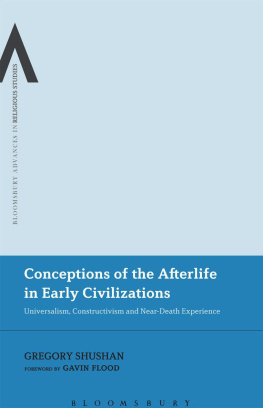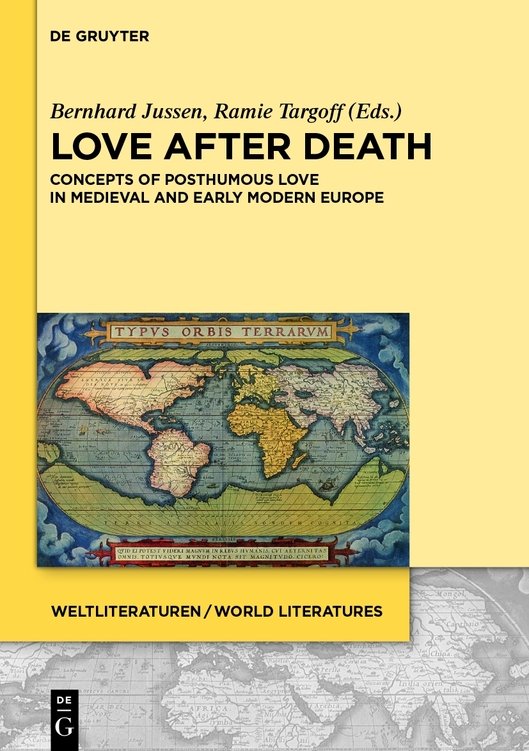This collection of essays is the result of an interdisciplinary conference held jointly at the Wissenschaftskolleg zu Berlin and the Freie Universitt Berlin in November, 2011; we are very grateful to both institutions for their immense generosity in hosting, and sponsoring, this event. Professor Joachim Kpper, one of the two hosts of the conference, generously proposed that we submit the book to his new series WeltLiteraturen / World Literatures published by De Gruyter, and has shepherded the volume through the various stages of production. Ginger A. Diekmann and Niamh Warde have done an excellent job copy-editing the essays, and Christoph Bramann has served as our excellent administrator and typesetter. We also thank Dr. Katja Leuchtenberger from the Akademie Verlag and Stella Diedrich from De Gruyter, who helped to complete the volume with competence and abundance of patience. We wish to thank each of the people mentioned above, as well as the many others too numerous to name who helped to bring this project to light.
Notes on Contributors
Beatrice Gruendler is Professor of Arabic Language and Literature at Yale University. Her research focuses on Arabic script and its use, classical Arabic poetry and its social context, the integration of modern literary theory into the study of Near Eastern literatures, and early Islamic book culture (ninth century CE) viewed within the history of media. Currently she researches literary accounts ( akhbr ) to throw light on the often practical functions performed by poetry in the ninth century and its reigning cultural aesthetics, and the role of philologists. In 2010/2011, she was a Fellow of the Wissenschaftskolleg zu Berlin. In addition to numerous articles and reviews, her publications include The Development of the Arabic Scripts: From the Nabatean Era to the First Islamic Century (1993); Understanding Near Eastern Literatures: A Spectrum of Interdisciplinary Approaches (2000; co-editor); Medieval Arabic Praise Poetry: Ibn al-Rm and the Patrons Redemption (2003); Writers and Rulers: Perspectives from Abbasid to Safavid Times (2004; co-editor); Classical Arabic Humanities in Their Own Terms: Festschrift for Wolfhart Heinrichs (2007; editor); Ab Bakr al-l: The Life and Times of Ab Tammn (Library of Arabic Literature) (forthcoming; editor and translator).
Bernhard Jussen is Professor of Medieval History at Goethe-Universitt Frankfurt. His main research fields are political language in the Middle Ages, computational historical semantics, pre-modern kinship, and modes of picturing medieval history in nineteenth-and twentieth-century scholarship. He was awarded the Gottfried Wilhelm Leibniz Prize of the German Research Foundation (DFG) in 2007. He was Visiting Scholar at cole Normale Suprieure Paris (2008) and Harvard University (2008/2009). Jussen is principal investigator of the Cluster of Excellence The Formation of Normative Orders at Goethe-Universitt (since 2008) and member of the Advisory Board of the German Historical Institute in Washington DC and of the European Research Council (both since 2010). Among his publications are Spiritual Kinship as Social Practice. God-parenthood and Adoption in the Early Middle Ages (2000); Der Name der Witwe. Erkundungen zur Semantik der mittelalterlichen Bukultur (2000); Die Macht des Knigs. Herrschaft in Europa vom Frhmittelalter bis in die Neuzeit (2005; editor); Die Franken. Geschichte, Gesellschaft, Kultur (2014).
Joachim Kpper is Professor of Romance Philology and Comparative Literature at Freie Universitt Berlin. He is the director of the Dahlem Humanities Center at Freie Universitt Berlin and was awarded the Gottfried Wilhelm Leibniz Prize of the German Research Foundation (DFG) in 2001. In 2009 he received an Advanced Grant from the European Research Council. He is a member of Leopoldina German National Academy of Sciences, and a corresponding member of the Gttingen Academy of Sciences and Humanities. His research focus is on Romance literatures and the theory of literature and arts. His books include sthetik der Wirklichkeitsdarstellung und Evolution des Romans von der franzsischen Sptaufklrung bis zu Robbe-Grillet (1987); Diskurs-Renovatio bei Lope de Vega und Caldern (1990); Petrarca. Das Schweigen der Veritas und die Worte des Dichters (2002); Zum italienischen Roman des 19. Jahrhunderts. Foscolo, Manzoni, Verga, DAnnunzio (2002).
Glenn W. Most is Professor of Greek Philology at the Scuola Normale Superiore di Pisa. He has taught at the universities of Yale, Princeton, Michigan, Siena, Innsbruck, Heidelberg, and Paris, and has been Visiting Professor in the Committee on Social Thought at the University of Chicago since 1996. His research fields are ancient and modern literature and philosophy, the history and methodology of classical studies, comparative literature, cultural studies, the history of religion, literary theory, and the history of art. He was awarded the Gottfried Wilhelm Leibniz Prize of the German Research Foundation (DFG) in 1996, and he has been serving as External Scientific Member of the Max Planck Institute for the History of Science in Berlin since 2010. Most has published numerous articles, reviews, and translations, such as The Measures of Praise: Structure and Function in Pindars Second Pythian and Seventh Nemean Odes (1985); Raffael, Die Schule von Athen. ber das Lesen der Bilder (1999); Hesiod, Loeb Classical Library, 2 volumes (2006/2007); The Classical Tradition (2010; co-editor); David Grene and Richmond Lattimore, ed., The Complete Greek Tragedies. Third Edition (2013; co-editor).
David Nirenberg is the Deborah R. and Edgar D. Jannotta Professor of Medieval History and Social Thought at the University of Chicago, where he is also the Roman Family director of the Neubauer Collegium for Culture and Society and Dean of the Social Sciences. His research focuses on the ways in which Jewish, Christian, and Islamic cultures constitute themselves by interrelating with or thinking about each other, particularly in Medieval Europe and the Mediterranean World. His work on these three religious traditions ranges across literary, artistic, historiographic, and philosophical genres. More generally, he is interested in how societies have imagined the possibilities and limits of various types of community and communication. In addition to dozens of articles and reviews, some of his publications include Communities of Violence: Persecution of Minorities in the Middle Ages (1996); Wie jdisch war das Spanien des Mittelalters? Die Perspektive der Literatur (2005); Anti-Judaism: The Western Tradition (2013); and Neighboring Faiths: Christianity, Islam, and Judaism, Medieval and Modern (2014). He has edited a number of volumes, among them Judaism and Christian Art: Aesthetic Anxieties from the Catacombs to Colonialism (2011); and Race and Blood in Spain and Colonial Latin America (2012).
Gerhard Regn is Professor Emeritus of Italian Philology at the Ludwig-Maximilians-Universitt Mnchen and Honorary Professor at the Universitt zu Kln. He also taught as Professor of Romance Philology at the Freie Universitt Berlin. His research focuses on Italian medieval and pre-modern literature and on nineteenth- and twentieth-century French and Italian literature, with a particular emphasis on the connection between literature and life sciences. He is a full member of the Bavarian Academy of Sciences and Humanities (since 2005) and corresponding member of the Berliner Wissenschaftliche Gesellschaft. In 2007 he was nominated Commendatore dell Ordine della Stella della Solidariet Italiana of the Italian Republic. Regn has published numerous articles, reviews, and books, including Questo leggiadrissimo Poeta! Autorittskonstitution im rinascimentalen Lyrik-Kommentar (2004; editor); Letture petrarchesche, a cura di Klaus W. Hempfer e Gerhard Regn (2007; co-editor); Francesco Petrarca. Africa. Lateinisch Deutsch (2007; co-editor and -translator); Lyriktheorie(n) in der italienischen Renaissance (2012; co-editor); Francesco Petrarca. Secretum meum. Lateinisch Deutsch (second, newly revised edition, 2013; co-editor and -translator).

